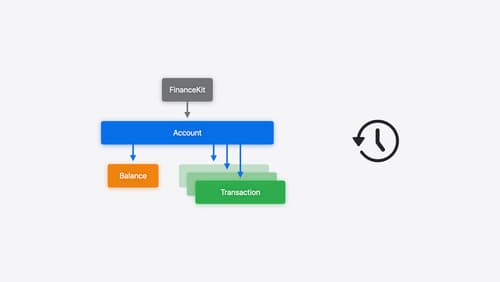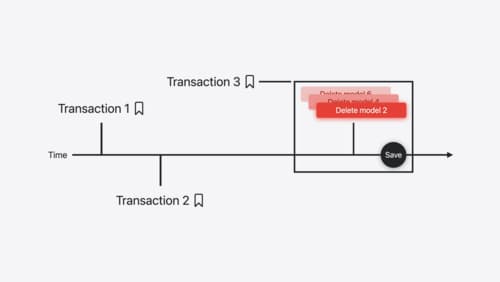NSDiffableDataSourceSnapshot
Asked on 2024-08-13
1 search
The concept of NSDiffableDataSourceSnapshot is not directly mentioned in the provided context from the WWDC sessions. However, the context does discuss the use of data source snapshots in the context of SwiftData, particularly in the session titled "Create a custom data store with SwiftData" (Session ID: wwdc2024-10138).
In this session, a data source snapshot is described as a sendable, codable representation of the model, which is used to hold the current state of the model. This snapshot is used to communicate model values between the model context and the store, allowing for efficient data management and updates.
If you are interested in learning more about how data source snapshots are used in SwiftData, you might want to check out the session "Create a custom data store with SwiftData" for more detailed information.

Platforms State of the Union
Discover the newest advancements on Apple platforms.

Meet FinanceKit
Learn how FinanceKit lets your financial management apps seamlessly and securely share on-device data from Apple Cash, Apple Card, and more, with user consent and control. Find out how to request one-time and ongoing access to accounts, transactions, and balances — and how to build great experiences for iOS and iPadOS.

Track model changes with SwiftData history
Reveal the history of your model’s changes with SwiftData! Use the history API to understand when data store changes occurred, and learn how to use this information to build features like remote server sync and out-of-process change handing in your app. We’ll also cover how you can build support for the history API into a custom data store.
